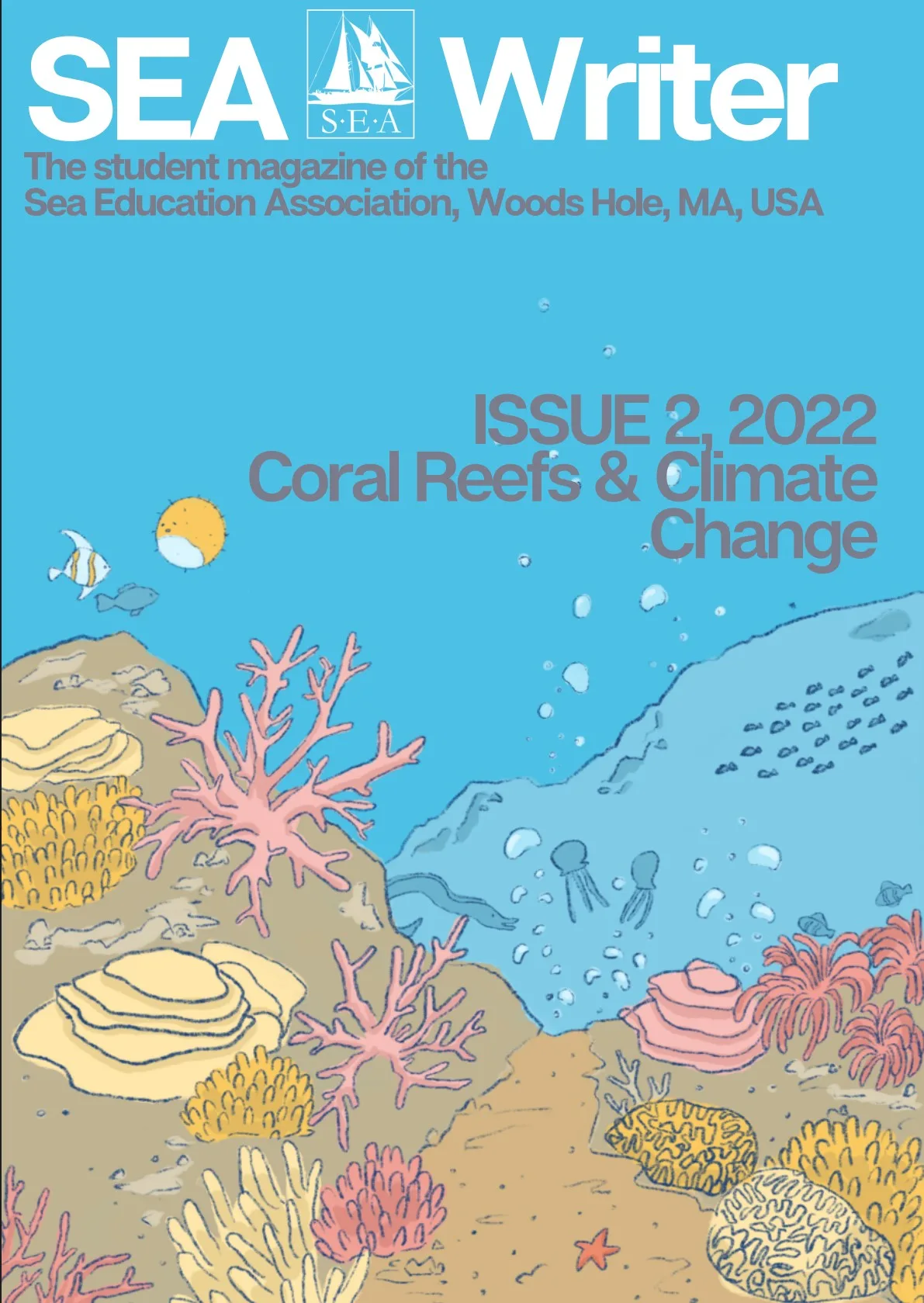News
SEAWriter: SeaQuest (Issue 2, 2022)

Coral Reefs & Climate Change
Introduction by Yuliia Heleveria
Sea Education Association (SEA), a non-profit organization based in Massachusetts, USA, is an international leader in the field of ocean studies. During two weeks in late July and early August of 2022, SEA held an online program called SEA Quest on the topic of “Coral Reefs and Climate Change.” SEA Quest is a fun, engaging, and inclusive summer program for high school students from all around the world who are eager to learn more about the ocean, its conservation, and prepare for college academics.
The seminar had three minicourses: “Oceanography,” “Oceans and Society,” and “Nautical Science.” This issue of SEA Writer is a project by high school students who want to make changes, find ways to fight climate change, and spread awareness about current environmental issues. The articles in SEA Writer are based on modern studies that are being rewritten by students, which makes them easier to understand, more engaging, and these new scientific data and research are combined with insights from young minds. By preparing SEA Writer, high school students are hoping to spread awareness of climate change and coral reefs as well as engage readers and inspire changes.
In this issue of SEA Writer magazine, seventeen students from China, the United States, Canada, England, Germany, Ukraine, Kiribati, and Iran worked on preparing articles about coral reefs and climate change.
While these studies represent a global issue, each individual article provides a smaller aspect of the problem and gives the reader a broader understanding. Students used a mixture of their various knowledge and backgrounds in order to represent our human relationship and impact on corals, climate refugees, and what we can do. This issue of SEA Writer can introduce you to El Niño, take you on a trip to Africa, or to Australia to explore fisheries or the Great Barrier Reef, or it can show what role crabs, sharks, and turtles are playing in the ocean and during global warming. Some of the articles also give insights into the possible solutions to stop climate change and save coral reefs by coral transplantation, marine protected areas, and utilizing ecological processes to promote coral recovery. In addition, the whole
group of students worked on creating solutions for climate change and bleaching corals written on the “What We Can Do” page at the end of the magazine. It shows what we can do as individuals, what changes should the companies and the governments provide, and what future research should be supported. We also recommend organizations where we can donate money in order to support fighting climate change and saving coral reefs. By creating the “What We Can Do” page, students want to inspire making changes and provide the idea that while working all together, we all have chances to save our planet and shape a better future!
About SEAWriter
SEAWriter is a student-published magazine, usually created as part of SEA’s Environmental Communications course. Each edition features articles, creative writing, and artwork contributed by program students and faculty. Environmental communication is essential in raising awareness, inspiring action, and bridging the gap between science and society. SEAWriter serves as a culmination of everything students have learned in all their courses and research as well as their field component. Through storytelling and visual expression, students apply their knowledge and creativity to effectively convey environmental messages to a broader audience.